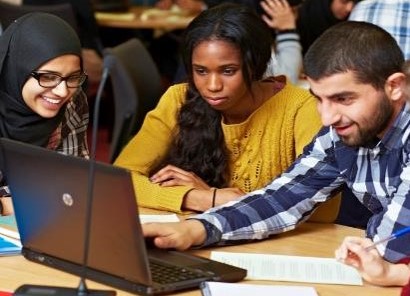Nottingham Trent University
Scaling up Active Collaborative Learning for Student Success
Led by Nottingham Trent University, this project will support increased use of active learning pedagogies at the three partners, as a strategy to address attainment disparities.
Nottingham Trent University, along with Anglia Ruskin University and the University of Bradford, are scaling up Active Collaborative Learning for Student Success.
Previous experience, evaluation results, as well as anecdotal and literary evidence, indicate that active, collaborative pedagogies can be used to address attainment disparities. Additionally, a focus on inclusive curriculum design moves the focus from ‘add on’ support for specific groups of students to a core, structural change that removes unintended barriers to student success.
The three universities collaborating on this project have experience of using SCALE-UP (Student-Centred Active Learning Environment with Upside-down Pedagogies) and TBL (Team-Based Learning), but at a relatively small scale. It has proven challenging for higher education institutions to spread the adoption of these pedagogies beyond the early adopters, even though the value of the approaches is widely recognised.

SCALE-UP
SCALE-UP is an active, collaborative mode of learning which offers an alternative to didactic and discursive pedagogies like lectures and seminars.
In SCALE-UP, lectures are replaced by problem-solving and enquiry-based activities carried out in strategically assigned groups. To foster collaborative learning, the re-designed classroom environment incorporates circular tables and technologies to enable students to share their work in small groups.
TBL
This is an active, collaborative learning and teaching strategy, which uses a special sequence of individual study, group work, immediate feedback and teacher-facilitated discussion and debate to create a motivational framework for students’ learning. TBL takes a flipped approach to learning, with students being provided with or directed to learning resources to engage with before formal classes.
The majority of class time is dedicated to application exercises where students learn how to use their new knowledge to solve authentic, real-world problems, make collaborative team decisions, justify their decisions to other teams during discussion and debate, all facilitated by an academic teacher.
Aims
- To increase the use of SCALE-UP and TBL at the three institutions as a strategy to address attainment disparities
- To test whether the benefits of the pedagogies continue to work at scale
- Address institutional barriers that have hitherto prevented wide-scale adoption
- To create a blueprint which details an approach that can be adopted at scale.
|
Catalyst funding |
£440,791 |
| Total project funding | £1,291,338 |
| Project contact name | Jane McNeil |
| Project contact email | [email protected] |
| Project contact telephone | 0115 848 8202 |
| Project website | www.aclproject.org.uk |
Describe your experience of using this website
